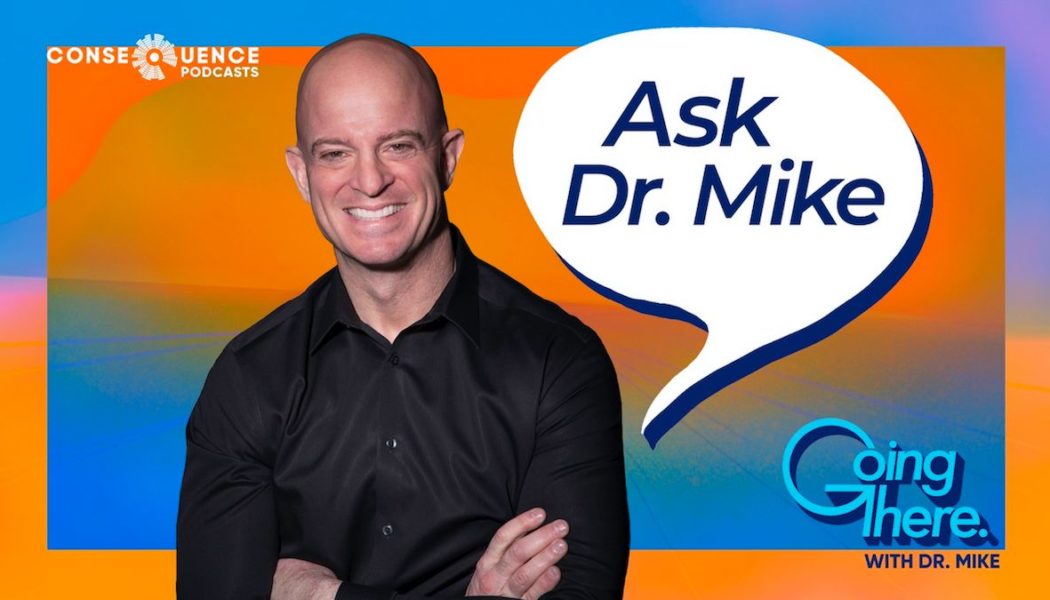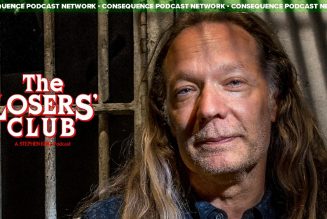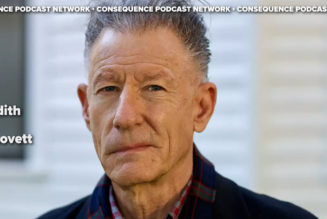
An extension of our Going There with Dr. Mike podcast, our monthly “Ask Dr. Mike” column is back to answer listeners’ questions. Over the last month of episodes, guests like Alessia Cara and Faye Webster touched on the challenges they faced in acknowledging their own mental health struggles. Many listeners responding to our survey asked about how they too can take this difficult first step, and Dr. Mike is here to offer some advice on listening to your wellness needs.
The stress of the COVID-19 pandemic has been overwhelming on every level — physically, emotionally, socially, financially and spiritually. As we struggle to cope during this difficult time, we may find that we just don’t feel like ourselves. We may be sad or irritable. The things that used to bring us joy don’t seem to make us happy anymore. Perhaps we have trouble concentrating and mustering the energy to do the things we need to do. Maybe we aren’t sleeping or eating the way we used to.
Soon, just living day-to-day becomes more difficult. It’s not as easy to get work done at our job or around our home. We don’t feel as connected to our friends and family. Suddenly, rather than feeling good about ourselves, we start to question our value in the world, even to the point of feeling worthless. We become hopeless that we will ever feel like ourselves again. Maybe we even think we’d be better off dead or committing suicide. It feels like our life is spiraling out of control and we simply don’t know why.
Related Video
It is at this point that we are faced with a choice. Do we want to accept that there may be something wrong and try to figure out what is happening? Or do we try to circumvent dealing with what we are experiencing? The allure of trying to ignore our suffering and “move on” is powerful. We are convinced that if we acknowledge that something is wrong, we will feel broken. We hope that whatever is wrong will just go away if we avoid it and push forward. And so, we keep our pain hidden so that we can feel “whole.”
The problem is that when we avoid our pain, it makes our suffering worse. Our body and mind are designed to communicate to us when something is wrong. When we ignore our own pain, our body and mind will just turn up the intensity until we listen. And so we descend into a vicious cycle whereby our suffering becomes more intense as we seek to suppress how we feel. We spiral, becoming more distressed, and feeling less able to function.
But there is another option. Rather than avoid our pain and suffering, we can choose to listen to ourselves, and accept that there is something wrong. As we confront what is happening to us, we may soon learn that what we are experiencing are symptoms of depression. Depression is an umbrella term used to describe a range of mental illnesses characterized by disturbances in our mood, concentration, energy, sleep, eating, and thought patterns. These disturbances can radically interfere with our life, causing us severe pain, suffering and loss of functioning.
To be sure, accepting that we may be depressed is no easy task. The notion of having a mental illness such as depression is terrifying for many of us. While we may have felt broken, we fear that having a mental illness is concrete evidence that we are damaged and may never feel whole again. We may also worry that we will be judged and treated differently by others. Yet by stopping the vicious cycle of avoidance and accepting that we may be depressed, we can begin the journey to feeling better and getting the help we need.
So how do we “accept” that we may struggle with depression? Acceptance is an active, ongoing process that can manifest in many ways. Here are some concrete steps that we can take to be more accepting of our depression and ourselves:
First, one of the best ways of enacting an acceptance approach to our depression is to seek out help from others. Ideally, this would begin by consulting with a mental health provider who can diagnose whether we are depressed and determine a specific diagnosis. Depression can manifest in many forms, including Major Depressive Disorder, Dysthymia, and Bipolar Disorder. Knowing whether we are depressed and our possible treatment options is a good start to our ongoing care. Even if we do not feel comfortable reaching out to a mental health professional, we can look to friends, family, support groups, or helplines to begin the process of reaching out and accepting our depression.
Second, one of the most effective ways of accepting depression is to understand depression. We now know a great deal about the possible causes and potential treatments for depression. There are a range of biological, environmental, cognitive, and behavioral factors that may perpetuate someone’s depression. Accordingly, there are several forms of psychotherapy, pharmacotherapy, and alternative treatments that may be helpful in managing our depression. Educating ourselves as to why we may have become depressed and how we might get better demystifies an otherwise frightening process and helps us confront rather than avoid our depression.
Next, based on our understanding of why we became depressed and possible treatment options, we can take action to manage our depression. One of the most important aspects of our action plan is to be open to experimenting with different methods that might be helpful for us. Oftentimes, we wind up using a combination of several techniques to manage depression. For example, some people find exercise one of the most helpful methods to improve mood. Others feel better when they use medication and/or psychotherapy. Depression management is usually an ongoing experiment and so it is optimal if we can be open to trying different things and determining what works.
Finally, and perhaps most importantly: we need to remember that accepting being depressed is not proof that we are “broken.” It is proof that we are brave enough to confront depression as part of our struggles at this point in our lives — and may be in the future. It is proof that we accept all of the experiences in our life, no matter how difficult.
It is proof that we are whole.
Going There with Dr. Mike and Sound Mind want to hear from you so you can be a part of our next “Ask Dr. Mike” column! Using the widget below or heading to this link, submit your own questions, and let us know what you think about the podcast by completing a quick survey.
For more from Dr. Mike, subscribe to the Going There podcast now. New episodes drop every Tuesday, and you should also follow the Consequence Podcast Network for updates surrounding all future programming.
Those in need of mental health assistance can visit the Sound Mind Live resources page for a list of helplines, community programs, therapy links, and more.
Listen via Apple Podcasts | Spotify | Pandora | Stitcher | Google | Pocket Casts | Radio Public | RSS










